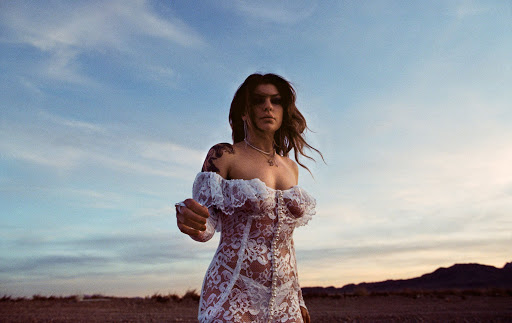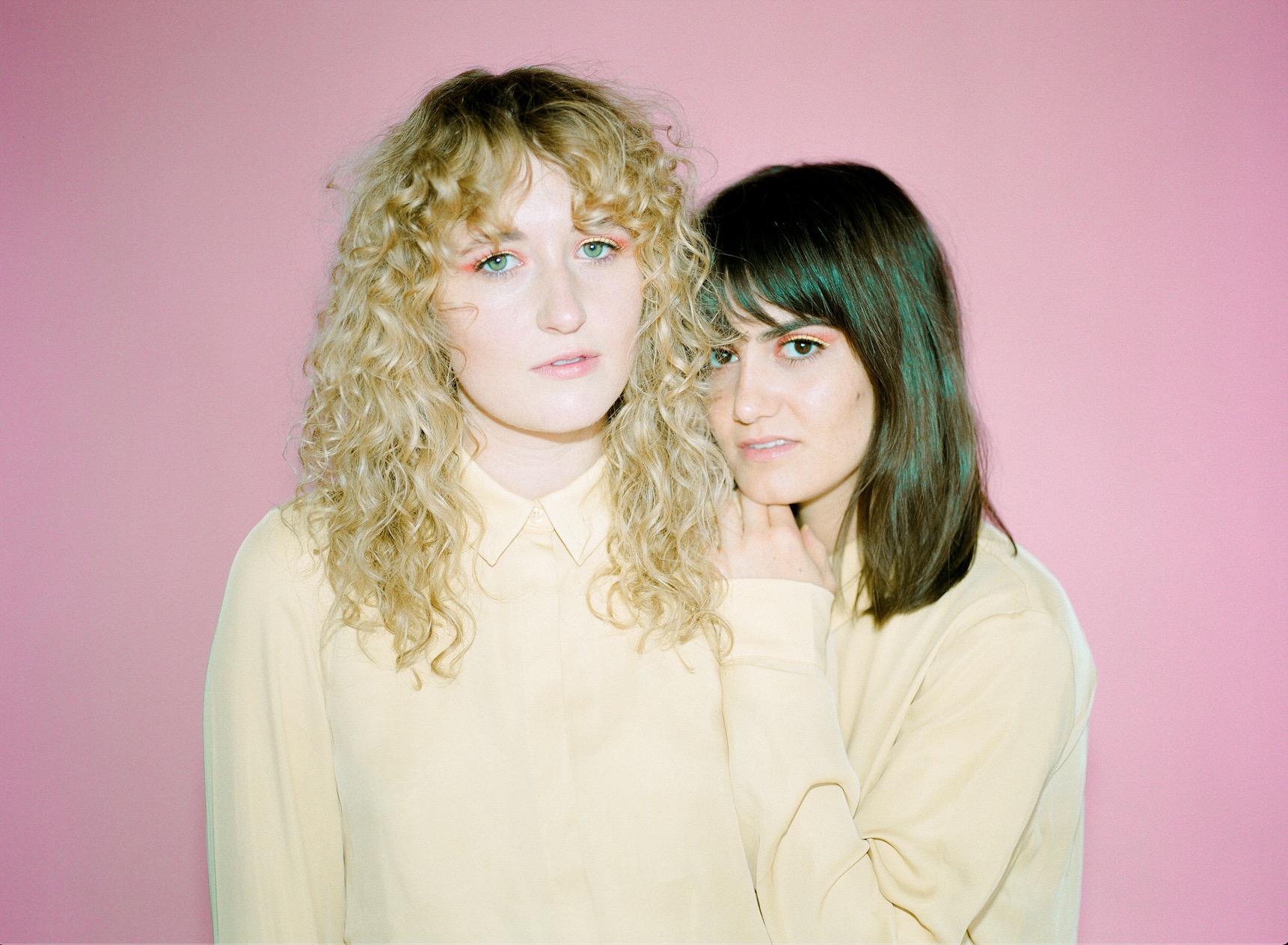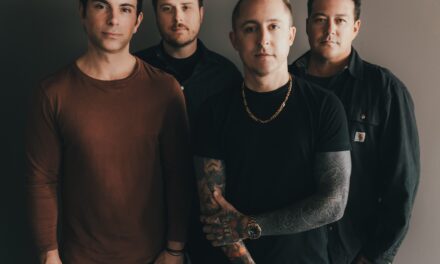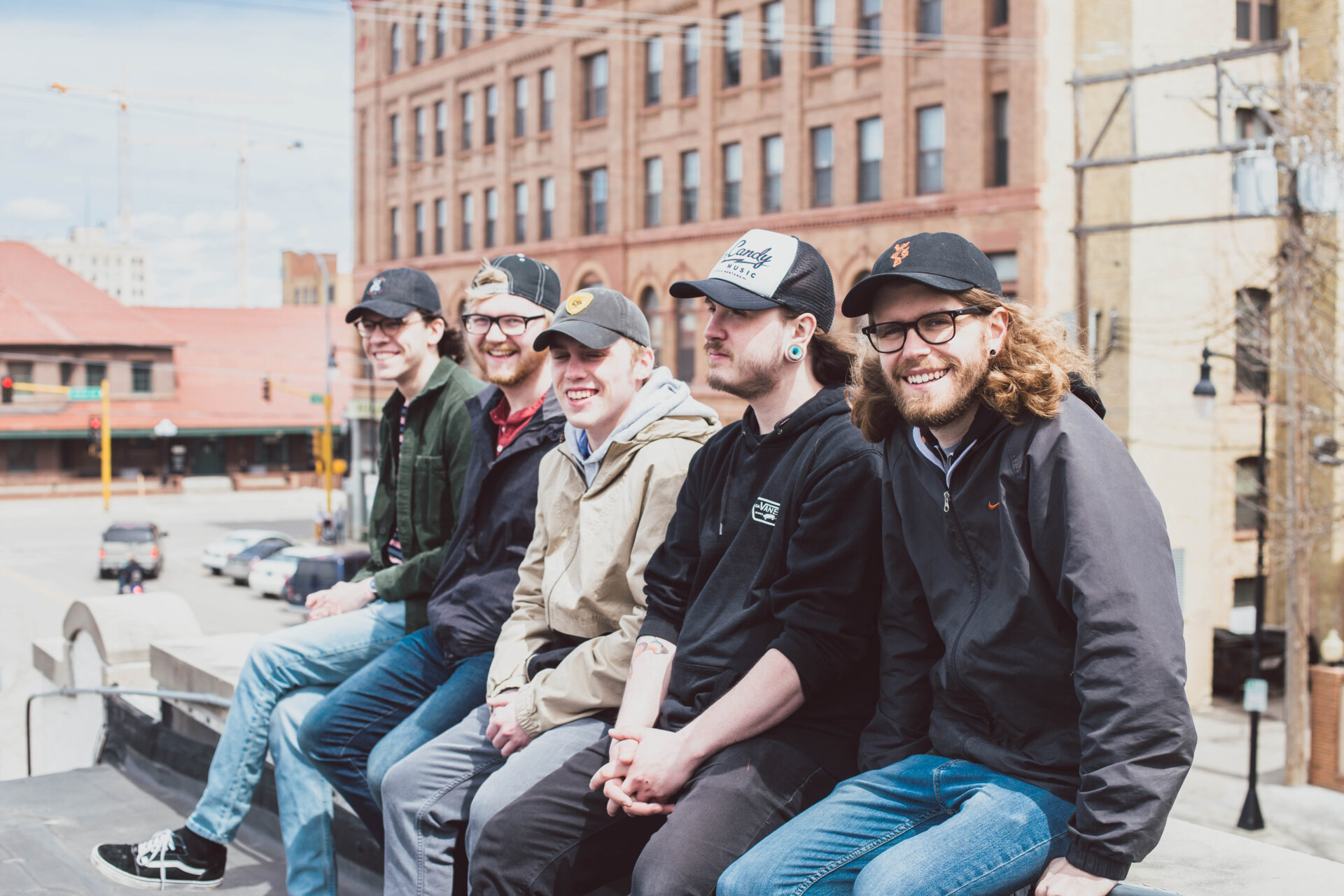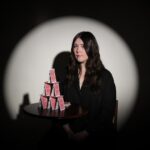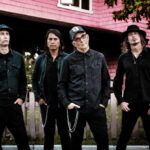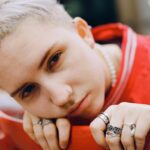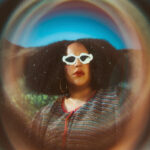When I was speaking to New Jersey born singer-songwriter Donna Missal about her newest album Lighter, I mentioned that it felt like a story. Not just of heartbreak, but all the in-between. The feelings of regret, contemplation of going back, and ultimately choosing to be alone to heal. From ‘How Does It Feel’ to ‘I’m Not Ready,’ you’re taken along a journey of someone who fighting and surrendering to a maelstrom of emotions. (Both songs even reference each other.)
“Maybe I should listen to it again” said Missal. So I can remember what it felt like because it was as true to the experience as I could get with the writing. I wanted to cap off the record with ‘I’m Not Ready’ because I had also kind of imagined what the listener might feel if they were to play this whole thing in reverse. Would it work the same way? It really does. The process is so not linear. It kind of is just like a big circle.”
Lighter marks a stylistic change for Missal. In working with producers Andrew Wells and Tommy King, the singer refined her songwriting process and tapped into something deeper with herself. Including rock-based themes drawing from influences like Shania Twain and The Smashing Pumpkins allows for her power voice to shine in new ways. Lighter doesn’t pull punches – both in what Missal was feeling and where her talent could take her from her sophomore album and beyond. I spoke with Missal about how her creative process has grown, her relationship with Lighter during the current pandemic, and growth.
You wrote an Instagram post saying that you felt as though Lighter was slipping away from you because of the current times we’re living in. There’s no live music because of the pandemic, and now musicians have to think of other ways to connect with fans. I know the album just came out last month, but what do you feel about it now?
Donna: I’m okay, you know? I think for a long time; it was important for me to be careful about not feeling bad for myself. I think this environment has created different outcomes for so many people. We’re seeing many people struggle with this in a way that’s so unimaginable. So, someone in my position where I have a job where I can still somehow work and have this secure income because I’m on a label – it’s all very unknown as far as how it relates to like the present and how I’m processing it. I feel very lucky within all of this, so I’m trying not to feel bad for myself.
I’ve just gotten to a point where I needed for my mental health to acknowledge that this is hard. It’s definitely taking a toll on me. I think that’s maybe what I meant when I was writing. Just acknowledging that it has been difficult. It’s serious, it affects everyone, and I am a part of everyone too. I think I needed to validate myself a little in how I was feeling because it’s not so easy to put a positive spin on this thing. I just needed to acknowledge it for myself that I’m just a human being. There’s no way to handle this perfectly. It’s okay to acknowledge that this has been hard.
I don’t know. I don’t really know what to do next with having the album only be a month old. I think that’s something that the internet does for all of us. It does amazing things and can be an amazing tool. I also feel like an effect that the internet has had on culture is that we process things so quickly. We move on, looking for the next thing. People want to be stimulated by something new as regularly as possible. I’ve been victim to that, but in looking at it from a creator standpoint, it’s been overwhelming.
I worked on the record for two years, and it’s only been out for a month. It already feels like it’s a responsibility of mine to move on to the next thing. With not being able to tour, it just takes this thing that you would have stretched out in these various ways. You want to create experiences within this music for people to come back and interact with it. It’s not possible right now. It really feels like it just came and went. I’m kind of at a loss for where to take it next.
I’m definitely feeling the pressure of “all right, what do I do now?” There are only so many ways to re-envision these songs and to perform them for people without access to touring and venues. I feel so proud of this album and I’m trying to stretch my imagination as much as I can to figure out how to how to share it in fresh ways.
I feel as though Lighter has some staying power because of how emotionally raw it is. The current times allow you to sit with these songs’ property. The bedroom sessions that you recently did really capture the essence of what these songs are made up of.
I’m glad that’s a takeaway you’ve experienced from watching them. I think I’m looking for ways to still have a relationship with the music. I’m not having the same experience as the fan or the listener where I’m going back to it and listening to it every day. I listened to it ad nauseam in getting mixes together and making sure that the writing was there. By the time it came out, I was like “all right, I’m already on to the next thing.” The initial thought was to tour and give the album a full cycle. It’s for the audience. It’s for the participant and fans, but it’s also for the artists – making a new relationship with the songs you use.
With the bedroom sessions, I was looking for a way to still perform, share, and create new relationships between myself and the songs. Therefore, maybe the relationship would grow also between the listener and the songs by just giving them a new interpretation. I’m also trying to be more autonomous as an artist by doing things independently. Creating things on my own is something I haven’t really taken the time to do in a long time.
When I was making Lighter, I was thinking about the live show the whole time. So, I thought it was ironic that when the album came out, that whole experience wasn’t going to be a part of it. I had to reframe my intention for this record and how to share it. Initially, I had this plan that I was going to go big. I wanted to get theatrical and put on a persona. I want to do choreography and make the band sound huge. These things do not apply well to the environment that we’re all in. In our homes, we’re unable to experience live performances and big scale things.
So, I decided that I should probably try to do the opposite and instead get intimate and vulnerable as possible. Just to see what happens. That’s where the bedroom sessions were conceptualized. There’s nowhere I feel safer or more insulated than my bedroom. For ‘Slow Motion,’ I was visiting home when I was getting ready to do that. Being in my backyard where I grew up as a kid and did all of my imagining, it made sense that the last one would take place in that environment.
It’s important for me to share, connect, and perform. I’m just trying to find ways to that aren’t just hopping on a live stream and singing into my phone. What else is there? What else could I do? It’s just sort of them an exercise in all of that for me and in trying to get out of my own head.
You have mentioned in recording Lighter that the lyricism started from seeds within yourself. You would start ideas in your bedroom and you did some rewriting. There’s a whole through-line in this album about heartbreak.
Yeah, I don’t know. I’ll think I don’t know how I would have processed this otherwise.
I don’t think I had a full understanding of what making and writing music did for me until I wrote this album. It really changed my relationship with writing, expression, catharsis and how to experience something. I’ll admit I felt that I would not be comfortable sharing this at times. It’s because it was ripping something directly out of my life, putting it down on paper, and then sharing it with people.
I had never really gone there with my writing. I’ve always written from my point of view and perceptions, but not as much from my personal and lived experiences. That’s what changed in working on Lighter. It felt scary, but also great. It’s the fear that lets you know that you’re onto something. Thar you’re about to have a breakthrough and overcome something because you’re letting yourself be terrified and sit with it.
I don’t write books, columns, or plays. I write music because there’s something that goes beyond catharsis with utilizing your body as an instrument. Nothing makes me feel closer to myself than when I’m singing and emoting through my voice. It’s the craziest feeling, I can’t even explain it. I really hope that it came through, felt genuine and personal. As I was listening to the songs, I realized how universally felt these things must be and how I was not the only one having these kinds of experiences. It made it a little easier to want to share them.
On your debut album, This Time, you were able to use your voice within the R&B container. Songs such as ‘Thrills,’ ‘Test My Patience,’ and ‘Girl’ are songs that display how powerful your vocals and be in that realm. When you enter Lighter and listen to ‘How Does It Feel,’ the song itself sounds huge. Like an opening score to a movie you created.
In using instruments like guitars, it lets us hear you use your gifts differently. Regarding the album’s subject matter, it just felt like it had to be this way. You use certain vocal runs reminiscent of Shania Twain and Sheryl Crow, which I thought was great. You turned those influences into something you could call your own. How did it feel to shift away from the mix tape feel of This Time to the more rock-based Lighter?
It was a decided approach. While it felt natural to be singing that way, I wanted to grow. I didn’t want to make an album that sounded the same. It was important to me to try something different and to challenge myself. I wanted to embody something new because I am something new now. I wrote Lighter it over several years. The music was a long journey into songwriting and many years of figuring myself out. I’m in such a different place. I’m such a different person. I’m really like trying to celebrate that because I think it’s important to take on change and to evolve as a person.
It was an important theme for this record. Something that I wanted to come across sonically because I am in such a different place, I have new ideas and I’m inspired by new things. I wanted all of that to be palpable with the writing of this record. It also just felt really good. It felt like a new extension of me I hadn’t really explored before. I grew up listening to r&b and pop music. That’s what I love.In my writing, it’s just has always been this natural thing.
With Lighter, I was listening to a lot of music like you had mentioned with Sheryl Crow and Shania Twain. I was also listening to The Smashing Pumpkins and My Bloody Valentine; music I hadn’t really spent a lot of time with before. They were really seeping into my consciousness as I wrote this record and I had really hoped that that would come through.
I don’t want there ever to be an expectation of me as an artist in that I’m going to remain the same. I’m always going to be changing and I want whoever is supporting and listening to me to know. I want them to know that’s going to be something that I’m always trying to do as an artist. Constantly evolving and see where inspiration takes me as I continue to grow and learn. I want to celebrate that and have that part of my process.
In speaking about ‘Carefully,’ that was one song that I pointed to. You really feel all the hurt and uncertainly you were experiencing in that snapshot of time in your life. It comes out in your bedroom sessions’ performance of the song as well. I could imagine it was hard to write that, but also good to get those feelings out.
That song is one of my favorites, and I’m so glad you mentioned it. Something happens when you’re writing. Your body just takes over. With a lot of the writing that I do, I’ll start with like a single instrument – either myself or someone in the room playing. I’ll just start vocalizing and just let things come out. It’s a good exercise for just to get my body in the right place or my voice warmed up. With that song in particular, I remember just singing into the room. It was the first thing that came out because I was having this lived experience. It was very current and visceral.
‘Carefully’ was taking over my body and mind constantly. In the writing room, all of that came through. My body just connected with my heart in such an immediate way that I was spitting out these lyrics and melodies. Within the first few minutes of being in in the space, the song came together so organically and quickly for that reason.
You touched on this earlier – there’s definitely something to be said for working a song until it feels good. Writing, being self analytical, and having enough self realization and confidence to separate yourself from your work. Being critical and making the right decisions to serve the song. That’s a process in itself. There’s also this thing that happens, where something is just making the decisions for you. You have to just follow it and trust it.
This was one of those songs where I said, “let’s not fight this. Let’s lean into it and trust these instincts.” It just felt so right to sing something in how those notes related to my body. ‘Carefully’ reminded me how powerful that is – in terms letting your instincts take over and do what they’re going to do.
How was working with Andrew Wells on this album? It appears even as you were going through these hard times; you had a fulfilling experience exploring this new facet of expressing yourself creatively?
Collaboration is weird. It’s trusting people with something so intimate. In the wrong hands, it can make you feel really depleted I remember the first session with Andrew. The very first time that we ever sat down in a room together with Anthony [Rossomando], who played on ‘Bloom’ and was my co-writer, we made ‘Hurt By You.’ From start to finish. I had said when I when I came into the room with Andrew it felt like coming out of left field for me because people know me as maybe more of an r&b-leaning artist. I told him I had this vision to make an album that sounds like if Shania Twain and Sheryl Crow were the lead singers of a band backed by Oasis and Smashing Pumpkins.
We had barely spent time together, and he said, “yeah, I want to make that album with you. I really believe in that.” After we made ‘Hurt By You, I was just like, “ok, this is the guy. We’re going to make an album together.”
For ‘Bloom,’ he had suggested that we do that song just on an acoustic in a room together. It’s the only song on the record that we did live. So it’s not the only take that we did. We did maybe five or six takes of that song, but it’s a live recording all the day through. Just me and Anthony on guitar. We were in the same room and I wasn’t wearing headphones. I was singing into a mic that was a foot away from me. Andrew pressed record on the tape machine and he’s said, “listen, you’re on tape. So, you know, that’s it. We’re not going to edit this. It’s not going to be possible.”
Something about that was freeing and honestly, no producer has given me that opportunity to perform that way for an album before. For him to trust us to do that and believe in what we were doing and to believe in the song enough to say it stands on its own this way. I think it takes a solid collaborator and creator to make those decisions. I’m not sure that it would have turned out the same if it had been with anyone else.
I’m very grateful that he approached making this record with so much care and
really listened through the entire process. Honestly, often being the only woman in the room with lots of male collaborators, it can be a very isolating experience. It can feel very demeaning, diminishing, and reductive. Andrew never made me feel that way once, and I’ll always appreciate and remember that.

